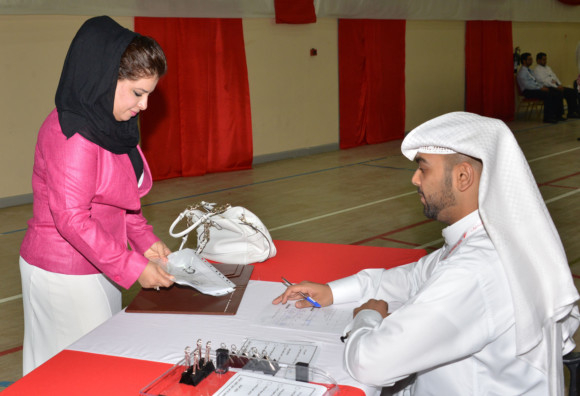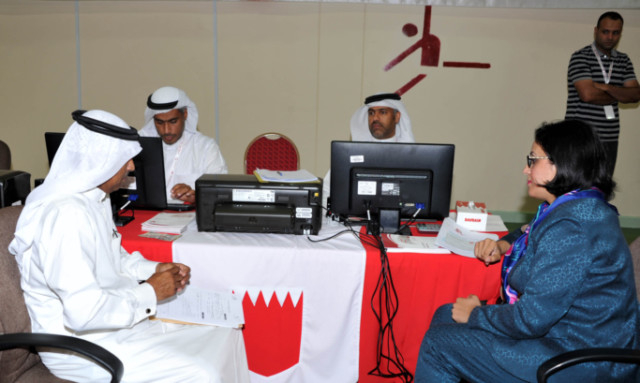
Manama: Three days into the Bahraini elections registration process, 278 people have signed up their names to run for seats in the parliament and municipal councils.
More names are expected to join the lists of the hopefuls across the country with the process closing at 9 pm on Sunday.
According to official figures, the Northern Governorate leads with 60 candidates in the parliament elections and 61 in the municipal polls, followed by the Muharraq Governorate with 49 seeking the parliament and 36 going after a municipal council seat.
The Southern Governorate has 44 parliament candidates and 32 municipal applicants whereas the Capital; Governorate has so far 41 names vying for parliament seats. No municipal elections will be held in the Capital after the Muncipal Council was scrapped by parliament in June.
Around 350,000 Bahrainis are scheduled to cast their ballots to elect their 40 lawmakers in the bicameral parliament on November 22, with run-offs in constituencies where there were no clear winners one week later.
Voters can make their choices at the polling booths in their districts or in any of the 12 general polling stations set up by the organizing committees to facilitate the process. Thus, shoppers at the Seef Mall can cast their ballots at a station at the shopping complex while Bahrainis on international move can use the booths at Bahrain airport or King Fahad Causeway, the 25-kilometre-long terrestrial link between Bahrain and Saudi Arabia.
The 40 members of the Shura Council, the upper house of the parliament, are appointed by King Hamad Bin Isa Al Khalifa. They included 11 women in the 2010-2014 term.
It will be the fourth general elections to be held in Bahrain since 2002 following a constitutional hiatus of almost three decades that was ended by the promulgation of a new constitution allowing women to run in parliamentary and municipal polls.
The quadrennial elections were held subsequently in 2006 and 2010. However, by-elections were held in 2011 to replace the 18 members of Al Wefaq Society who pulled out of the lower chamber in February ostensibly to protest against the way the government dealt with protestors during the dramatic events that unfolded in the country.
Some opposition societies boycotted the elections in 2002, but reversed their decision in 2006 and Al Wefaq won 17 seats, while the other opposition societies made no gains. In the 2010 elections, Al Wefaq won 18 seats, but the other opposition societies again failed to secure any seat.
Last week, Al Wefaq and four smaller political societies said that they would again boycott the elections, arguing that they wanted greater political and constitutional changes in the country.
Their decision was criticized by several Western countries that expressed disappointment in a statement.
Shaikh Khalid Bin Ali Al Khalifa, the justice minister, on Wednesday said that the calls for the boycott did not seem to dampen enthusiasm for the elections.
“There is a constitutional right for every citizen to vote and run in the elections and the competent committee is upholding this right,” he said. “We see there is participation at all levels. If there are people who have issues, they should address them.”
Shaikh Khalid said that no candidate would be allowed to use religious buildings, including when they deliver sermons, during the campaigning and the election process.
“We will deal with every single violation of the law,” he said as he visited a registration centre.













